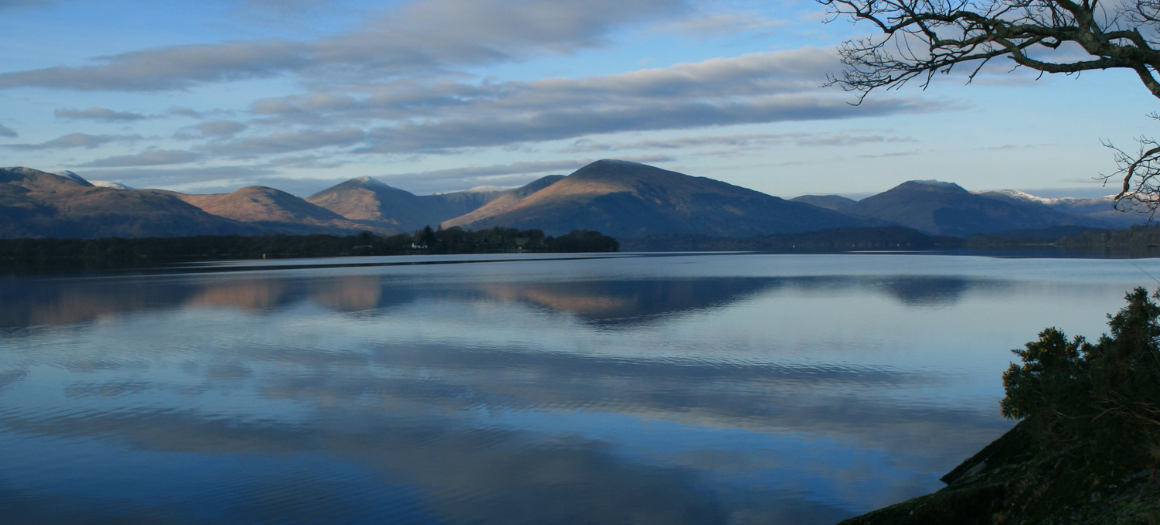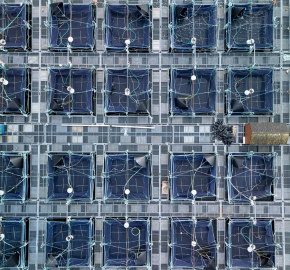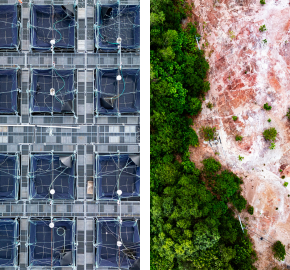Information Commissioner backs WildFish to end salmon farming secrecy in university research

In 2024, an academic paper was published in the Journal of Environmental Management [1] which reported on long-term ‘changes’ to the ecology of certain freshwater lochs in Scotland, all of which contain fish farms.
The authors of the paper reported that seven lochs were studied “to better understand the impacts of in-lake fish farms on the quality of freshwater ecosystems…spanning the period before and after installation of the fish cages at these sites”.
They concluded: “at three lochs (A, C, E) we observed marked diatom assemblage shifts indicative of eutrophication, coincident with arrival of the fish farms, at two lochs (B, G) there was evidence of enrichment over a longer timescale although with some further enrichment occurring with the advent of the fish farms, and at the other two lochs (D, F), diatom shifts were subtle and showed no sign of eutrophication. Thus, while marked ecological shifts are shown to occur with the arrival of fish farms in some sites, this is not always the case”.
Strangely, the paper did not name the lochs where this ecological harm has been caused by the fish farms, merely labelling them as Lochs A to G.
The paper stated that “the authors do not have permission to share data” and that “data cannot be made available owing to the need to preserve anonymity of the study sites”.
That seemed unjustified to us at WildFish, because, typically, fish farms do not occupy the whole of a freshwater loch in Scotland, nor is it usual for a fish farmer to own an entire freshwater loch. It is ‘taken as read’ in law that damage to the wider environment, in this case, ecological harm caused to freshwater lochs, interests us all. Why should the names of freshwater lochs that the fish farms have damaged, be kept from the public, and by a university that the public itself funds?
So, WildFish lawyers wrote to the lead author at University College London and asked her to let us know the names of the lochs.
We were refused, with UCL invoking exceptions provided for in law relating to “the confidentiality of commercial information” and “the interests of the person who provided the information” to UCL.
In other words, UCL was prepared to go into battle to protect fish farm companies from proper public scrutiny of their environmentally damaging operations.
In response, WildFish lawyers were forced to make a detailed referral of the matter to the Information Commissioner.
It is worth noting at this point that the lead author had declared a competing interest in the paper, that “financial support was provided by Marine Harvest Limited” [now called Mowi, the biggest salmon farming company in Scotland].
Now, we all know and accept that universities in the United Kingdom have long been regarded as bastions of knowledge and public service. Their mission is to advance human understanding through rigorous research, while maintaining transparency and integrity. The UK is rightly proud of its universities (and we underfund them at our peril).
But UCL’s refusal to name seven freshwater lochs in Scotland, some of which have been damaged by fish farms, shows the malign influence of commercial sponsorship in some UK academic environmental research.
Academic freedom – the right of researchers to pursue truth without external interference – is at risk when financial considerations dictate what may or may not be published. This lack of transparency can erode public confidence in environmental science and may fuel scepticism toward academia.
So, WildFish lawyers were delighted when on 28th March this year, the Information Commissioner issued a formal Decision Notice to UCL requiring it to disclose the identity of the seven lochs.
UCL has until the end of April either to appeal against the Commissioner or let us know the names of the lochs.
We will keep you posted and will name the lochs as soon as we can, which is more than UCL wanted to do.
List of references
- Helen Bennion, Gina Clarke, Patrick Frings, Ben Goldsmith, Joshua Lait, Neil Rose, Iain Sime, Simon Turner, Handong Yang (2024) Paleolimnological evidence for variable impacts of fish farms on the water quality of Scottish freshwater lochs. Journal of Environmental Management, Volume 369, 2024,122155, ISSN 0301-4797.





I have a very close knowledge of the River Awe and have studied the problem of eutrophication in the loch leading to extensive algae growth in the river – a river devoid of algae 20 years ago. I look forward to hearing the out come of the decision
Regards to Guy and keep up the good work. CGC